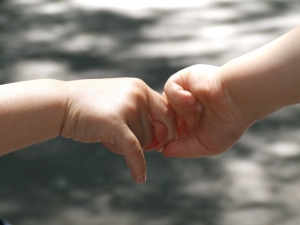 Adoption laws in Florida sometimes change due to cases that make their way through the court system. Adoptions are often a pleasant legal experience when everyone cooperates from the beginning, but that is not always the case. What results is not just a long court battle when things do not go as planned, but changes to the law to help minimize the risk of difficulties in the future. That recently occurred in Florida and the changes not only impact the adopting parents, but the birth mother as well.
Adoption laws in Florida sometimes change due to cases that make their way through the court system. Adoptions are often a pleasant legal experience when everyone cooperates from the beginning, but that is not always the case. What results is not just a long court battle when things do not go as planned, but changes to the law to help minimize the risk of difficulties in the future. That recently occurred in Florida and the changes not only impact the adopting parents, but the birth mother as well.
In a recent Florida adoption case, the court determined that a birth mother, giving up her rights to the child through the signing of a consent, should be represented by her own legal counsel. Often the way adoptions go, the birth mother is generally advised of her rights by counsel that may be representing the adopting parents or by someone from the adoption agency. The Florida courts recently held that a birth mother should actually have her own adoption lawyer present at the time of signing consent so that she is fully advised and aware of her rights and options in the proceeding.
As a lawyer, I agree with this change because I think that it better protects the birth mother throughout the process. Often emotions run high and you want to make sure that as a mother, one choosing to your child a home with an adopting family, that you understand the legal process from the beginning. I do not think that the birth mother should only be represented at the time of signing a consent, but as soon as possible when she has made the choice to place the child. This decision is a great decision to make and being armed with knowledge as to the process and feeling like you have support from the beginning can be crucial to a good outcome for you, the child and the adopting parents.
 Jacksonville Divorce Lawyer Blog
Jacksonville Divorce Lawyer Blog


 Florida adoptions fall under Florida Statute
Florida adoptions fall under Florida Statute  As a Jacksonville divorce and family law
As a Jacksonville divorce and family law  Florida had a long standing adoption ban for homosexuals until an appellate court ruled that there was no merit for the ban and found it unconstitutional. However, the issue was not over with that court ruling because there was a push for the Florida Supreme Court to hear the case and brief filed by the State and the Department of Children and Families. However, in
Florida had a long standing adoption ban for homosexuals until an appellate court ruled that there was no merit for the ban and found it unconstitutional. However, the issue was not over with that court ruling because there was a push for the Florida Supreme Court to hear the case and brief filed by the State and the Department of Children and Families. However, in Stepparent adoptions in Florida can be done in a relatively short amount time, if all parties are in agreement. Basically, if the biological parent is willing to sign a
Stepparent adoptions in Florida can be done in a relatively short amount time, if all parties are in agreement. Basically, if the biological parent is willing to sign a  As a Jacksonville, Florida family law attorney one of the more joyous occasions I get to handle are
As a Jacksonville, Florida family law attorney one of the more joyous occasions I get to handle are  Teenage pregnancies or unwanted pregnancies seem to be a common topic in American culture. From Sarah Palin’s daughter to
Teenage pregnancies or unwanted pregnancies seem to be a common topic in American culture. From Sarah Palin’s daughter to  The Florida Department of Children & Families has decided that it will not appeal last month’s 3rd Circuit Court of Appeals decision overturning the state’s 30-year-old ban on gays and lesbians adopting children.
The Florida Department of Children & Families has decided that it will not appeal last month’s 3rd Circuit Court of Appeals decision overturning the state’s 30-year-old ban on gays and lesbians adopting children.